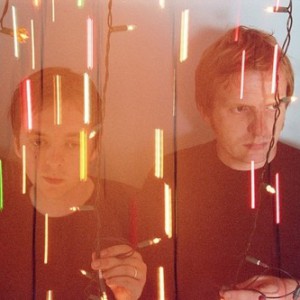The Green Man
He was already drunk, and becoming slightly pompous; the pub jukebox blared in the corner, and outside, crowds flowed with supernatural ease through the Green Park arcades, and downhill to the river, sifting through glass-fronted boutiques, leaving for Metroland and the Christmas break. I listened because I had nothing better to do: all my friends had gone, and he'd bought me a drink.
"That winter," he said, "I went back to the family house, which was then at the edge of a large and half-finished estate. It was still and quiet, backing onto a copse the bulldozers had missed when they levelled the heath. The drab light lent everything an insubstantiality, intensifying the curious end-of-term feeling I had, the sense that the days themselves were somehow exhausted.
Three windows took up one side of the dining room, with a steadily murmuring radiator underneath. Enamel paint curled away from the window frame in flakes and peels, and the hot metal in the room gave off its alienating, faintly acidic smell. I remember clouds drifting in, and I watched them pick up the red flare of the streetlights."
This last point emphasised by a moment of silence, which he filled with a look around the bar.
"Late one night a figure appeared in the garden. It was almost pathetic; hungry-looking. boss-eyed and twisted. Under the faint light that the room cast over the gravel, I could see that its skin was made of flowers. It was hollow. It shied like an animal, and disappeared into the wood.
I knew it - you would have too, if you'd been there; it was a figure I'd glimpsed in a car park as a child; an expression crossing the face of a stranger late one night at Waterloo Station as I hurried for a train with my parents; a carving in the portico of a mediaeval church. In some nightmarish way it was particular, and it was also infinite. It was itself, it was the wood, it was the last roses in the garden, and yet it was also a wider sentience, perhaps best described as the feeling that the trees and fields we look at have always secretly been looking back into us.
The air felt charged, somehow electric, and as I stared at the place it had been, I became aware of a smell of dust. I smelt the billions of falling microscopic specks, the ghost dust-rain that surrounds all of us, all the time. For one moment of hyper-awareness I could read its mixtures and vintages, the histories and provenance of each particle of dust in the room. And faintly, hauntingly, somewhere on the edge of all the others, I smelt the surviving dust of 1978.
It was a dust of forgotten piano lessons; church halls; school gatherings in terrapin huts. Back then, to a child's nose, even the smell of glass differed from room to room, and for one second I could smell all the mirrors and the windows of those lost days, the unbounded spaces between them; it was a dust of the exhaust fumes of Austin Allegros, the naked wooden floors of a new house, bike tyres and long-discontinued cigarette brands. A dust that conjured pools of evening light, mysterious journeys, finished lives, dreads and hopes of an almost atavistic intensity.
I blinked, I seem to remember I was terrified, but at the same time so surprised, so overwhelmed with longing, with love for the past, love for the dead, that at that moment fear had no real meaning: I inhabited a bright, blank space that I'd encountered once before when I dislocated my knee on a rugby field.
Then neither quickly nor gradually, it was gone. The room returned, and with it the seamlessness, the ordinary loneliness of the night. I never saw that figure, or anything like him, again.
Days later, when the weather had broken, I looked over the hill, past the woods, and the developer's tracks and pylons. The freezing air seemed to distort the sounds of the construction vehicles, and their bleeps and revs sang like human voices. I remember thinking, 'If the world was one degree stranger, one degree more fluid, I could have escaped and joined myself back there, I could have disappeared forever. But it isn't, and I'm stranded here, split into two, getting ready for bed in a dormitory town.' "
He drank. Dark had fallen; the world was moving forward confidently, tangibly.
